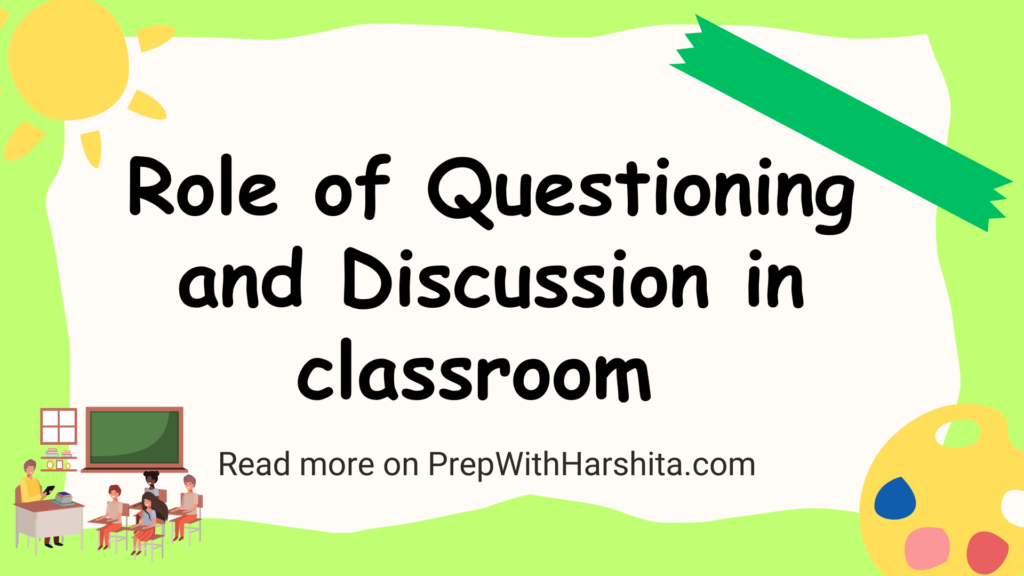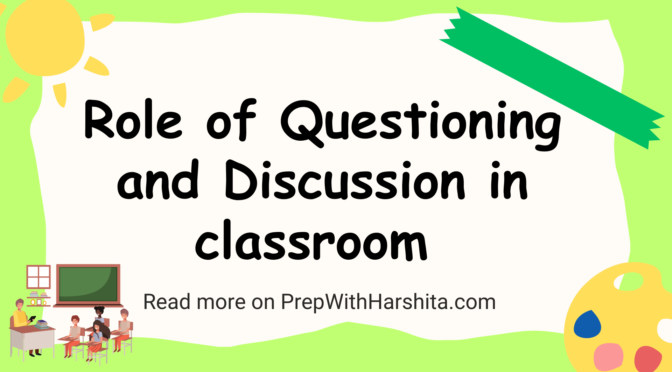Role of Questioning and discussion in the classroom play essential roles in the classroom, fostering active learning, critical thinking, and meaningful engagement among students. They create opportunities for students to explore concepts, share ideas, analyze information, and develop a deeper understanding of the subject matter.
Here are some key aspects of the role of questioning and discussion in the classroom:
- Promoting Critical Thinking: Thought-provoking questions encourage students to think critically, analyze information, and evaluate different perspectives. By posing open-ended questions, teachers can stimulate higher-order thinking skills and challenge students to delve deeper into the content. Discussions allow students to express their opinions, provide evidence to support their ideas, and engage in intellectual debates, fostering a culture of critical thinking within the classroom.
- Enhancing Understanding: Well-crafted questions and meaningful discussions provide opportunities for students to clarify their understanding of concepts. Through questioning, teachers can assess students’ comprehension and identify any misconceptions or gaps in knowledge. Discussions allow students to exchange ideas, explain their reasoning, and learn from their peers’ insights. The interactive nature of discussions helps students refine their understanding, gain new perspectives, and construct meaning collaboratively.
- Encouraging Active Participation: Questioning and discussion create an inclusive classroom environment that encourages active participation from all students. By using a variety of questioning techniques, such as posing questions to individuals, small groups, or the whole class, teachers can ensure that students of different abilities and learning styles have opportunities to contribute. Engaging in discussions allows students to actively listen, respond, and build upon each other’s ideas, fostering a sense of ownership and active engagement in the learning process.
- Developing Communication Skills: Questioning and discussion provide opportunities for students to practice and improve their communication skills. They learn to articulate their thoughts clearly, use appropriate language, and support their ideas with evidence. By engaging in discussions, students develop active listening skills, learn to ask probing questions, and practice respectful and constructive communication with their peers. These skills are essential for effective collaboration, teamwork, and future academic and professional success.
- Encouraging Reflection and Metacognition: Thoughtful questions and discussions prompt students to reflect on their own thinking processes, monitor their understanding, and become aware of their learning strategies. By encouraging students to explain their reasoning, justify their answers, and reflect on their own learning, teachers help them develop metacognitive skills. Students become more self-aware learners who can identify areas of improvement, adapt their approaches, and take ownership of their learning journey.
- Cultivating a Positive Classroom Climate: Questioning and discussion create a classroom environment that values student voice, diversity of ideas, and respectful exchanges. When students feel heard and respected, they become more engaged and motivated learners. Discussions foster empathy, understanding, and appreciation for different perspectives, helping students develop social and emotional skills. By fostering a safe and inclusive space for questioning and discussion, teachers create a positive and collaborative learning community.
In conclusion, questioning and discussion are powerful teaching strategies that promote active learning, critical thinking, and meaningful student engagement. They enhance understanding, foster communication skills, develop metacognition, and cultivate a positive classroom climate.
By incorporating effective questioning techniques and facilitating productive discussions, teachers empower students to become active participants in their own learning and foster a culture of curiosity, inquiry, and intellectual growth.
Also Read : Relationship between Language and Society

Also Visit : Prep with Harshita

